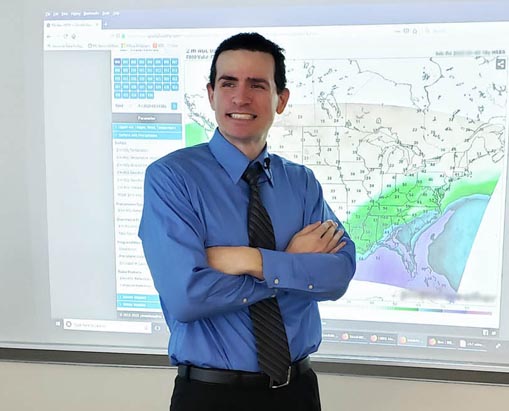How to find cheap or free college textbooks for your course

College is expensive and that’s why it’s even more important to save money when you need to get textbooks. You should not have to buy from a specific, limited bookstore, which may also force you to pay a higher price. If you search Google, you can find cheaper textbooks, especially if you consider renting. This article will give you some free tips on where to find the cheapest textbooks and a few thoughts on e-books.
Alternatives to Expensive Books
Expensive college textbooks isn’t a new thing but it’s getting worse. Back in 2018, CBS News once reported that the average student paid about $153 per course on books or about $1,200 per year. This is just an estimate. Estimates like these may not include “materials”, “software”, and other related fees.
For example, some computer science or medical classes charge “technology” and other fees, which are similar to textbook material costs — and outside of already expensive tuition costs. This is why it’s important to save whenever you can. You do have some options for most textbooks.
Tips for Cheap (Possibly Free) Textbooks
Before we discuss where to buy textbooks, I want to provide some educational information. Research is your friend – it saves you time and money.
Searching Google, for example, could give you results for free copies of many different college textbooks. There might be a website or department hosting a free copy the entire book you need (often a PDF file). By searching, you might be able to find portions or all of the textbooks you need for free online. Always check your syllabus or search for the textbook before you buy it.
I’ve taken undergraduate and graduate courses where the professor provided links directly to the entire free book online, which was great because you didn’t need to purchase any book.
One of the most important tips is to make sure you get the right ISBN/edition of the textbook you need. Unfortunately, many textbooks are rapidly updated, meaning the book you purchased last semester might be an older edition that will no longer be used in the next course. Although the content may be similar, portions may be missing, pages may have changed, and figures will have been moved around. It will make things much more difficult, if you get the wrong textbook edition.
Buying Textbooks
Buying a textbook is probably the most expensive option. You can either buy new or used. In some cases, used textbooks could be significantly cheaper than new. Buying is getting a little harder because some classes are using e-books only. I’m not entirely happy about limiting options (more on that below).
Be very careful that you get the exact ISBN you need. There are international versions that may differ from what you need. I do not recommend buying, if you’re on a budget.
Renting Textbooks
Renting a textbook is a pretty cheap way to get a textbook (recommended if you’re on a tight budget). I have over 350 college credit hours so I’m pretty familiar with purchasing all kinds of textbooks, from medical to technical. These get extremely expensive so I learned quickly that renting was a better option. For example, one medical textbook was $225 new, but I found it for rent at $18 for the entire semester.
There is a catch to renting. You don’t own the textbook. You can’t write in it or tear out pages. You are also limited to the amount of time you can keep it, before you get charged the full price. Provided you take care of it and don’t spill BBQ sauce on pages, these rent companies often send you a free return shipping label. This means you get quick free shipping to you and then an easy free return label when you’re done. I’ve done this so many times and it actually works.
Here are a few places I’ve rented from before:
Chegg
Valore
Abebooks
VitalSource
Campusbooks
E-books
E-books are becoming more popular, especially over the past 5 years. One of the arguments for this, at least from the publisher standpoint, includes less cost for printing, shipping, production, and environmental cost. On the other hand, they often lock the content so you never own it, there is no physical book, you often have to use their proprietary software (reader) to read the book, and you may even be limited to a few months only of reading.
I’ve used e-books quite a bit, but I have both positive and negative experiences. In some cases, the e-book software was so locked that reading a single page was difficult and required several clicks. Copying text was disabled (unlike using a regular browser window on a typical webpage). It requires special software to use and an account with their publisher to access your textbook. Without this software or being logged in, you can’t even read the book you purchased.
I’ve also had some past experience with some publishers making students get a course ID code from a professor, after they’ve already purchase an e-book for the course. To state clearly, this meant that after the student bought the e-book, they still cannot access or read it until the professor gave them a code. I’m not very happy about that. I expect to be able to use a textbook immediately after purchase. Beware of these things!
Some of the positive things about e-books may be reader features, such as digital highlighting, being able to search the entire textbook for key terms, and text-to-speech technology (having it read out loud to you). I can see this being helpful to some people.
Final Thoughts
Hopefully, this article should give you some good ideas on how to save on your next college textbook purchases. Overall, I recommend renting as the best option and only after you’ve made sure via Google search that your textbook isn’t already online for free. In many cases, I’ve found the textbooks I need were already online (the entire book/PDF), which meant I didn’t need to purchase the expensive textbooks.
As a professor, I’ve also noticed a little trend, recently, of courses utilizing open education resources (OER) textbooks. I’ve done this in a few of my courses. It’s basically an open source/free and fully online college textbook. Students are given a direct link to the entire textbook online. They don’t have to purchase anything. I would like to see more development in this area and I know it would save a lot of students time and money.
Good luck with your courses!
More about author.
